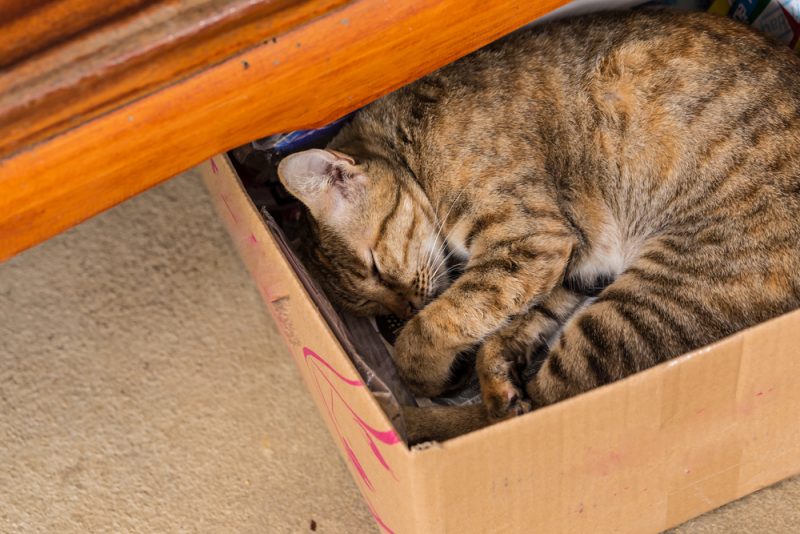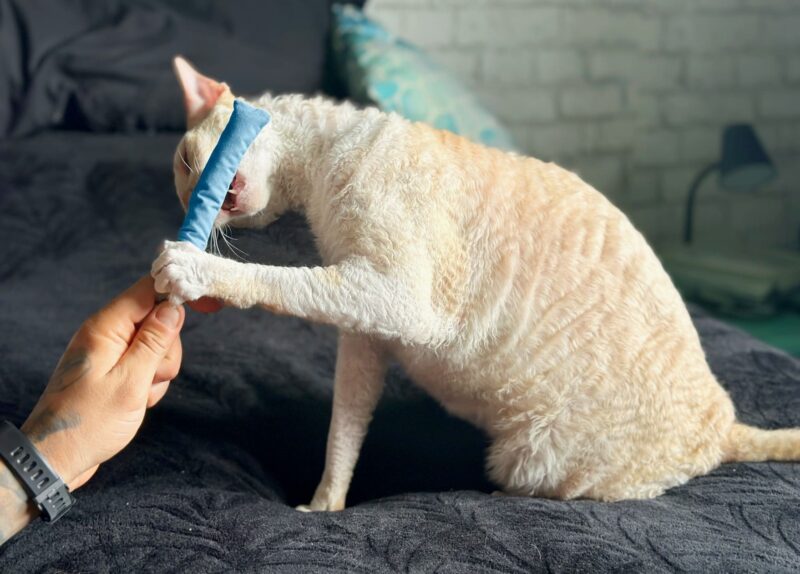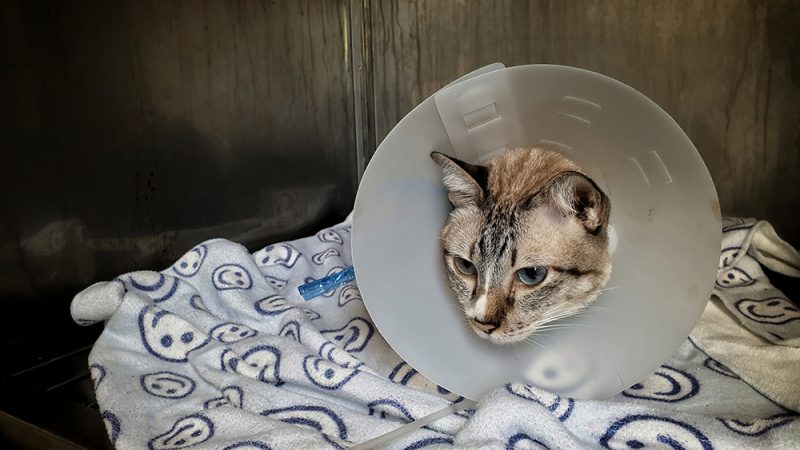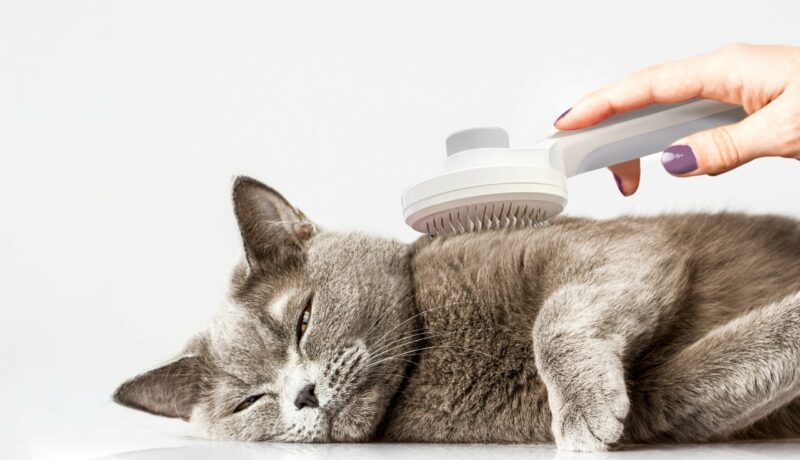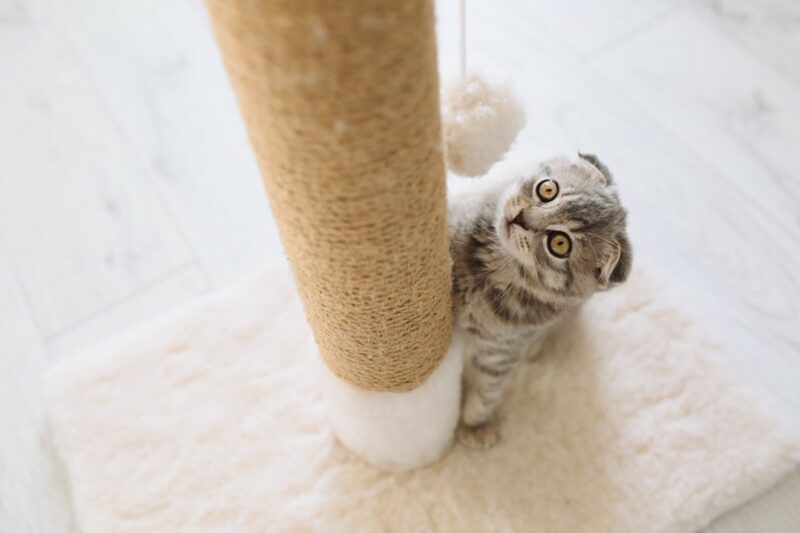Have you ever walked into your bedroom and, instead of snuggling on the bed, your cat is curled up in the laundry basket? Yesterday it was the bathtub, and before that, the closet.
Sound familiar?
Cats are professional nappers, snoozing an average of 12–18 hours a day (and yes, some even top 18!). So when your feline suddenly abandons their favorite cozy spot for something odd, it’s natural to wonder if something’s wrong.
The truth? Sometimes it’s harmless, but other times it’s your cat’s way of telling you something’s off. Here are 7 vet-verified reasons your cat might be sleeping in new, unusual spots and how to tell which ones need a closer look.

7 Reasons Cats Suddenly Sleep in Odd Places
1. Their Wild Instincts Are Kicking In
Believe it or not, your indoor kitty still has a wild heart. In nature, cats change sleeping spots often to stay safe from predators and sometimes even move their families to new locations.
That instinct hasn’t gone away. If your cat just had kittens or you’ve introduced a new pet, you might notice them switching up their favorite nap zone to reestablish their “territory.” Think of it as feline home décor, survival edition.
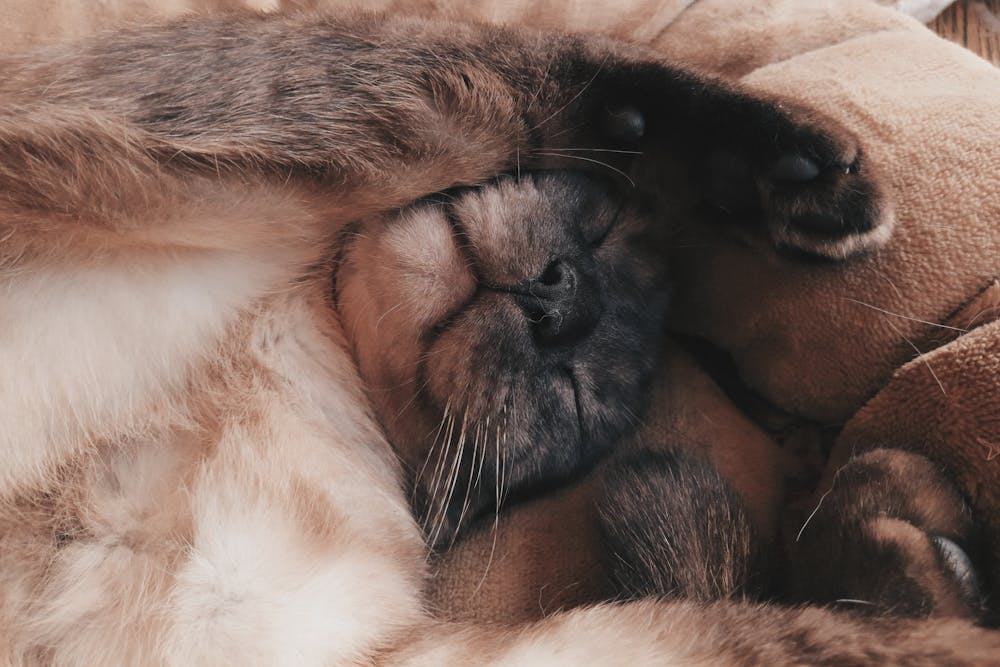
2. The Seasons Are Changing
Just like you swap out your bedding when winter hits, your cat may do the same.
When the weather cools down, they’ll look for cozy, heat-filled nooks, like near radiators or under blankets. When it’s hot? Expect them to sprawl on tiles or retreat to a cool basement. Your cat’s sleeping spot might simply be their way of chasing comfort with the changing seasons.
3. They Crave Privacy (Yes, Even From You!)
You love petting that fluffy belly mid-nap, but your cat might not feel the same.
Sometimes, cats move to new spots because they just want some peace and quiet. They value security, and hiding while sleeping helps them feel safe from disruptions (including overly affectionate humans). Don’t take it personally, but your cat just needs some “me-time.”

4. Pain Might Be the Problem
Here’s where you’ll want to pay attention. Cats often hide pain incredibly well, and a sudden change in sleeping habits can be a clue.
If your cat has arthritis or another chronic condition, climbing to their usual perch might hurt. So they find softer, lower spots that are easier to access. Look for other signs like limping, irritability, or sleeping in tucked, hunched positions.
When in doubt, a vet check can help rule out discomfort or joint issues.
If you need to speak with a vet but can't get to one, head over to PangoVet. It's an online service where you can talk to a vet online and get the advice you need for your pet — all at an affordable price!

5. They’re Reacting to a Scare or Trauma
A loud bang, a dropped pan, or construction noise outside, any of these can spook your cat into finding a new nap zone. Cats associate places with experiences, so if something startled or hurt them near their usual bed (even accidentally stepping on them), they might avoid it afterward.
In these cases, patience and positive associations (like treats and calm attention) can help rebuild trust in their favorite spots.
6. Stress or Fear Is Creeping In
Big life changes—like moving, a new baby, or another pet—can shake up your cat’s sense of security. When that happens, they often retreat to a “safe zone” to cope.
Even smaller stressors like road work or guests can trigger this shift. Keep routines consistent and create quiet, cozy hideaways so your cat feels grounded again. A predictable environment = a happier, sleepier kitty.

7. Illness Could Be Behind It
Sometimes, that odd sleeping behavior is your cat’s way of saying, “I don’t feel good.”
Cats with urinary tract infections might nap near the litter box for quick access. Others with general illness might isolate themselves, sleep more than usual, or act withdrawn. Watch for other changes like poor appetite, low energy, or avoiding interaction.
If anything seems “off,” it’s always safest to check with your vet. Early care can make all the difference.

Final Thoughts
Don’t panic, but pay attention. A new nap spot doesn’t automatically spell trouble. Maybe your cat’s just avoiding the noisy construction crew or finally found a warmer sunbeam.
But if you notice behavioral changes, like irritability, lethargy, or changes in appetite, don’t wait it out. Your cat’s sleeping habits can be one of the earliest clues that something’s wrong.
Otherwise? Let them enjoy their mysterious new throne. After all, half the fun of loving a cat is trying to figure out what’s going on in that furry little head.
Feature Image Credit: CPM Photo, Shutterstock
Did You Know?
